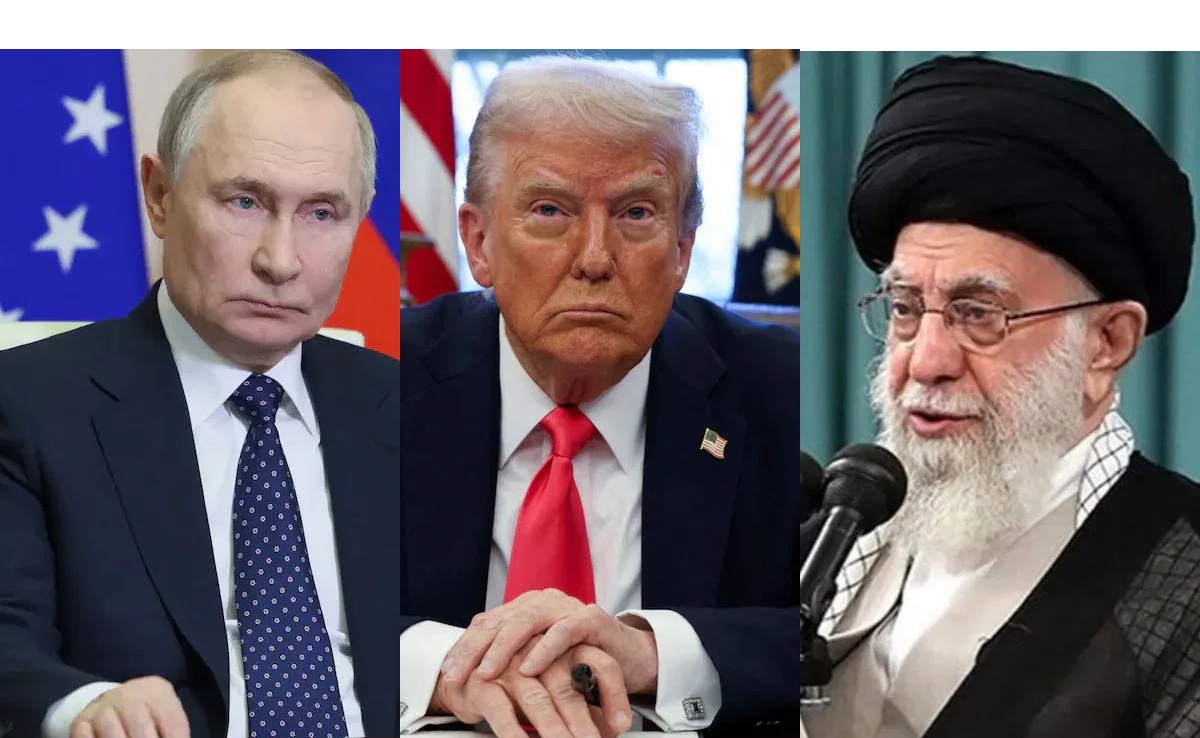Russia on Thursday, June 19, 2025, delivered a sharp warning to the United States, urging it not to intervene militarily in the intensifying conflict between Israel and Iran.
The message, delivered Thursday by Russian Foreign Ministry spokesperson Maria Zakharova, comes amid escalating hostilities in the Middle East and rising fears of a wider war.
“We especially want to caution Washington against military involvement in this situation,” Zakharova said during a press briefing.
He described any U.S. action as “an extremely dangerous step” that could lead to “unpredictable and severe consequences.”
The warning followed a dramatic chain of events in the region: Israel launched an unprecedented strike on Iranian territory, prompting Iran to retaliate with a barrage of missile and drone attacks.
These developments have rattled international observers and heightened concerns over potential escalation involving global powers.
Russia, a key ally of Iran and a long-standing player in Middle Eastern geopolitics, has taken a notably cautious approach.
Despite having a strategic partnership and recently deepened military ties with Tehran, Moscow has so far declined to provide direct military support in response to Israel’s actions.
Instead, President Vladimir Putin appears to be positioning himself as a potential mediator.
While he has criticized Israel’s military operations, he has also stopped short of fully siding with Iran.
“Our Iranian friends have not asked us for military support,” Putin said at a televised press conference in Saint Petersburg.
He emphasized that their January treaty with Iran, while significant, does not obligate Russia to defend Iran militarily.
When asked how he might respond if Iran’s Supreme Leader personally called for help, Putin avoided speculation, reinforcing Russia’s stance of caution and diplomacy over direct involvement.
At the same time, Putin is not acting alone.
In a phone conversation with Chinese President Xi Jinping, the two leaders expressed strong disapproval of Israel’s recent military actions.
Both Russia and China reiterated that military solutions are not viable paths to resolving the Middle East crisis.
“Promoting a ceasefire and ending hostilities must be the top priority,” Xi said, as reported by China’s state-run Xinhua News Agency.
“Armed force is not the correct way to resolve international disputes.”
The Kremlin echoed this sentiment through Putin’s aide, Yuri Ushakov, stating that both nations fully support resolving the situation through diplomacy and coordination, not force.
However, Western leaders are showing little interest in Russia’s proposed diplomatic role.
U.S. President Donald Trump, when asked about the possibility of accepting Putin’s offer to mediate, responded dismissively: “He actually offered to help mediate. I said, ‘Do me a favor—mediate your own.’”
Trump has also hinted that the United States might consider joining Israel’s military campaign against Iran.
“I may do it, I may not,” he said on Wednesday, leaving the door open to American involvement.
His remarks, paired with Macron’s cool stance on Russian mediation, suggest that Western leaders are skeptical of Moscow’s influence or intentions in the region.
Russia’s position in the Middle East has become more complicated over the past year, especially following the political fall of Syrian President Bashar al-Assad, once one of Moscow’s most reliable regional allies.
Combined with the ongoing Israeli campaign in Gaza, Russia now faces a more fragmented and challenging landscape.
Nevertheless, the Kremlin seems determined to maintain its influence through diplomacy rather than direct confrontation.
With its alliance with Iran and its partnership with China, Russia may be recalibrating its strategy to play a balancing role in an increasingly polarized region.
As the world watches this volatile situation unfold, the risk of a larger international conflict looms.
Whether the crisis moves toward diplomacy or devolves into deeper military confrontation may depend on how major powers like the U.S., Russia, and China choose to act in the critical days ahead.







